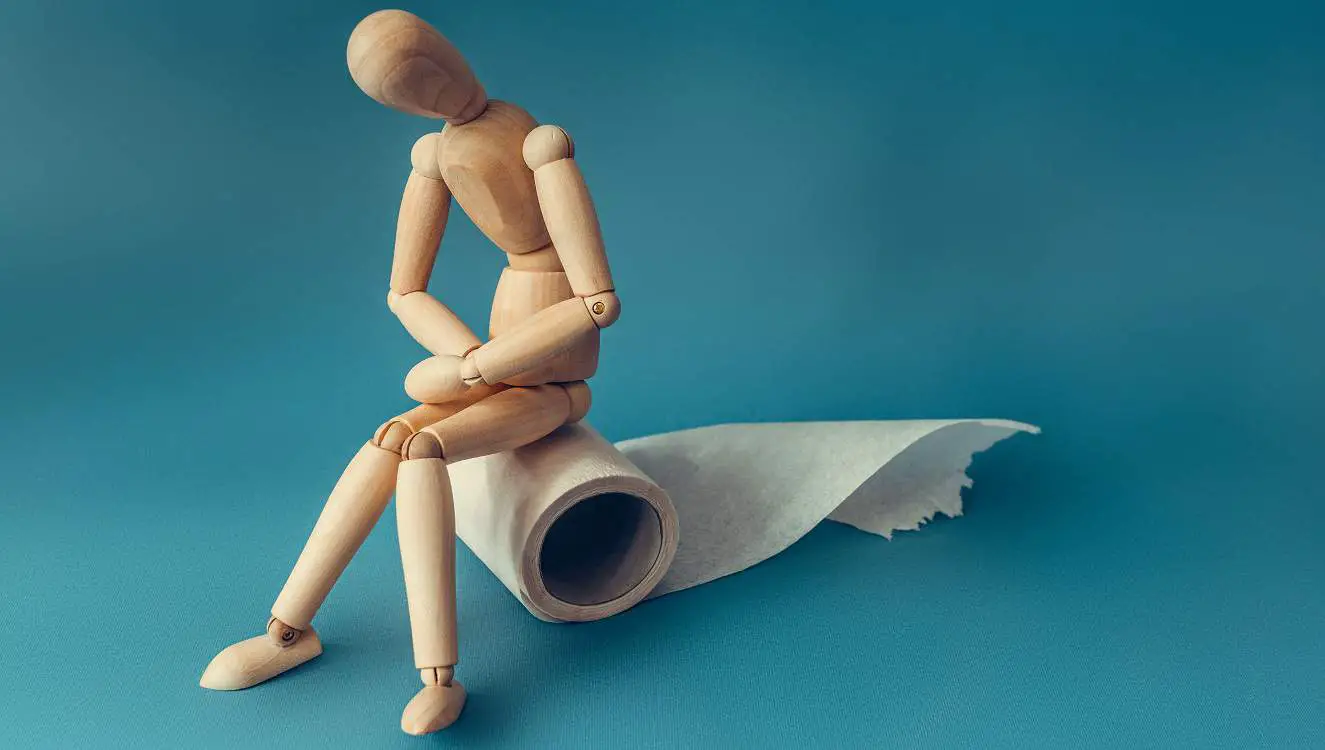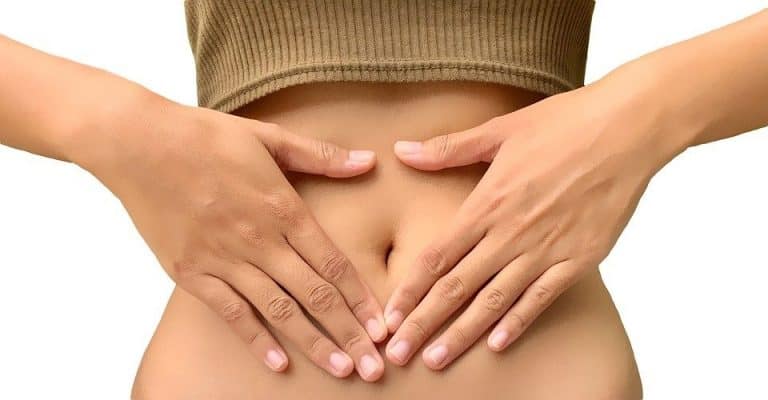What Are the Best Probiotics for Constipation?
By the time you find yourself on the hunt for the best probiotics for constipation, it’s fair to say that constipation has become enough of a recurring problem that you’re seeking a long-term solution for it.
Researchers from around the world have spent time studying probiotics to find out how they can help in the treatment or prevention of many health issues, including digestive orders like constipation and diarrhea, caused by inflammatory bowel disease (IBD), irritable bowel syndrome (IBS) or an imbalance in bacteria brought on by taking antibiotics or other causes.
There has been useful preliminary evidence suggesting that some strains of probiotics may help not only in preventing diarrhea but in preventing or treating constipation, as well.
It’s still unknown how many colony forming units (CFUs) that someone would have to take and what strains will work the best in constipation. It is not as well-researched as probiotics in treating diarrhea.
Probiotics are not all the same. If one strain of Lactobacillus helps prevent a specific illness, that doesn’t mean another strain of lactobacillus would have similar effects, or whether any Bifidobacterium strains would do the same.
Some probiotics show promise in research, and there is mounting evidence to support the use of specific probiotic strains for certain health conditions.
Do Probiotics Help Constipation?
If you’re like most people, you will experience multiple constipation episodes through the years. Some causes of constipation include irritable bowel syndrome (IBS), stress, taking antacids, not drinking sufficient water, or a diet low in fiber.
Natural remedies like probiotics can provide you with welcome relief. How so? Probiotics are often called good bacteria since they treat health issues and help in keeping your intestine healthy. They can be found in some foods, and we’ll look into that below.
Probiotics can help treat constipation, causing a reduction in the uncomfortable feeling that elimination is not complete and in abdominal distension.
The results of studies on probiotics are mixed, as is the case with any type of food or supplement marketed for health purposes. In some cases, parents have had success with probiotics increasing the frequency of bowel movements in children.
Researchers also suggest that any failures of probiotics in studies might be due to inadequate time over which the probiotics are administered. As we noted, many probiotic species and strains are affecting the body in different ways.
Some species and strains are turning out to be more effective in the treatment of constipation than others. We’ll look into specific strains and studies conducted on them below.
How Probiotics Help Constipation
If the bacteria in your gut are in balance, good versus bad, you won’t need food or supplements to add probiotics to remain healthy. However, a balanced scenario is not often found due to many outside reasons.
Probiotics in foods or supplements will assist the good bacteria already found in the gut. They can keep you healthier by:
- Replacing your body’s good bacteria that could have been lost during courses of antibiotics
- Decreasing the population of bad bacteria in the gut that could otherwise cause inflammation or infection
- Restoring your good and bad bacteria balance, which helps your body to function properly
What Is Intestinal Motility?
Gastrointestinal motility or intestinal motility refers to the movement of food from your mouth through the throat, esophagus, stomach, small intestine, and large intestine and then out of the body. Your GI system is what is responsible for digestion. Intestinal motility disorder is a digestive problem or condition that happens when the nerves or muscles of your gut don’t work properly.
Some studies have shown the beneficial effects of probiotics for gut motility that are mediated through a person’s nervous system. This shows us that probiotics might help regulate or normalize gut motility, improve digestive health, and relieve constipation.
How to Choose Probiotics Best for Constipation
You need to keep in mind that beneficial bacteria are live microorganisms, and they won’t help you if they’re dead. When you are checking which probiotic to purchase…
- Check for the expiration date. Don’t purchase probiotic supplements that are past their best by date.
- Ensure that you are getting enough colony forming units (CFUs) in the supplement you choose. Manufacturers actually pack more CFUs than the packaging indicates so that the amount still alive when you buy the product will be what the label says.
- Look for a sizable dose. Speak with your physician about how many CFUs you need for your purposes.
- Store your supplements properly. Probiotics need a dry, cool place away from the airflow to preserve their beneficial properties. The best choice is often buying refrigerated probiotics. Keep them in the refrigerator as soon as you bring them home. Freeze-dried probiotics are also a good choice for longevity in storage.
- Consistently take supplements. The digestive tract is volatile, and using probiotics daily can ensure that you maintain the optimal state of flora in your gut.
What Are the Best Probiotic Strains for Constipation?
As you already know by now, how effective a probiotic is for constipation very much depends on the probiotics strains that it contains. Based on research, here are the best probiotics strains for constipation.
Bifidobacterium longum
Strains of this probiotic have been the subjects of tests in the past. One recent study saw success with elderly patients who were constipated. It was able to give them more regular bowel movements.
B. longum was also able to prevent constipation in babies in a separate trial. Considering more upcoming studies, it is believed that this strain will prove to be quite helpful for constipation. It is found in numerous probiotic products.
Bifidobacterium infantis
B. infantis is among the main species of good bacteria that make up a very healthy intestinal flora for infants. It is a dominant and important good bacterium in children of young ages, as well.
In a 2006 study conducted by PJ Whorwell, the researchers discovered that the B. infantis strain encouraged children to have more frequent bowel movements than children who received a placebo.
Lactobacillus casei
L. casei is the probiotic ingredient in the drink Yakult. It has been studied in effects on constipation. In one double-blind trial, 70 patients who suffered from chronic constipation were treated with a probiotic or placebo.
Patients were examined once a week, and after just two weeks, the probiotics patients had reduced constipation sharply. However, it did not appear that the probiotic influenced gas or bloating. L. casei has also been found to be helpful for patients with Parkinson’s disease who also suffer from constipation.
Bifidobacterium lactis
This probiotic can be found in multiple products that help create or maintain a healthy gut. It was researched in a double-blind trial for elderly patients with constipation. Acacia fiber was also used in the study, so the results are not weighted as heavily as studies where just one strain and ingredient is used.
That said, the results of this study were quite positive. Patients experienced dramatic improvements in constipation symptoms.
Bifidobacterium animalis
B. animalis was researched in a 2002 double-blind study with healthy adults. The group that received this probiotic strain for 11 days in a row reduced the transit time in the colon by about 20%. Women had better results than men.
Another study in 2010 confirmed the benefits of B. animalis, proving that it does reduce the transit time for people who suffered from constipation.
Lactobacillus rhamnosus
Occasional constipation will be less of an issue for those who use lactobacillus rhamnosus probiotics. It is great for digestive health because it produces lactic acid. Lactic acid prevents potentially harmful bacteria from surviving, improving your gut health. It prevents the bad bacteria from colonizing and encourages the growth of beneficial bacteria.
Lactobacillus Plantarum
It is said that Lactobacillus Plantarum can bind to the intestinal mucosa and increase the number of beneficial bacteria in your gut. This probiotic strain is commonly found in fermented food products and anaerobic plant matter. It is also found to be non-motile.
How Long Should You Take Probiotics for Constipation?
Probiotic supplementation can take several weeks to work. For this reason, you want to stick to just one type of probiotic supplement for at least 3 to 4 weeks to see if it is effective before you make the switch to something else. In the meantime, you can also introduce various probiotic foods to your diet that can also help with constipation.
Prunes: These contain a high amount of fiber per serving. The soluble fiber found in prunes is fermented in the colon and produces short-chain fatty acids that can ultimately increase stool weight. They also produce sorbitol which can create a laxative effect in a small number of people.
Apples: These are a great way to boost your fiber content and alleviate constipation. Apples contain a soluble fiber called pectin. The pectin is fermented by the bacteria and forms short-chain fatty acids that pull water into the colon and can ultimately relieve the symptoms related to constipation while also increasing the number of beneficial gut bacteria you have.
Chia Seeds: This is another fiber dense food you can introduce to your diet to help with occasional constipation. The fiber in chia is 85% insoluble fiber and 15% soluble fiber. When the chia mixes with water, it creates a gel. When this happens in your gut, it can effectively soften stool and make them much easier to pass.
In Summary
In addition to taking a beneficial probiotic for gut health, you should also follow a diet rich in fruits, vegetables, and seeds to help relieve occasional constipation. Drinking plenty of water is also recommended, especially when you increase your fiber intake.
Finally, regular exercise is another factor that can ultimately help relieve constipation symptoms and help lead you to develop healthier bowel habits.
FAQ
If you still find yourself with questions regarding the best probiotics for constipation or how they can benefit your overall health, read on for the answers to some of the more commonly asked questions.
How can probiotics help treat digestive conditions?
Probiotics help treat digestive conditions by lowering the pH level in the colon. This can help move the stool quickly through and can also help relieve antibiotic-related diarrhea.
Do probiotics for baby constipation work?
It has been found that babies taking probiotics have had significantly more bowel movements than those on placebos after several weeks, suggesting the probiotics improved their constipation.
How long will it take for probiotics to work for constipation?
Most probiotic supplements, in general, take several weeks to start working. For this reason, stick to just one type for up to 4 weeks before switching to a different probiotic. In the meantime, you can add a variety of probiotic foods to your diet in addition to your probiotic supplement.
Disclaimer: While our team of medical expert writers makes every effort to convey the correct, relevant, and most up-to-date information, you should never disregard advice given to you by your medical practitioner or delay seeking medical assistance because of something you have read on Gutsify or received in correspondence from Gutsify. Please refer to our Terms and Conditions.










